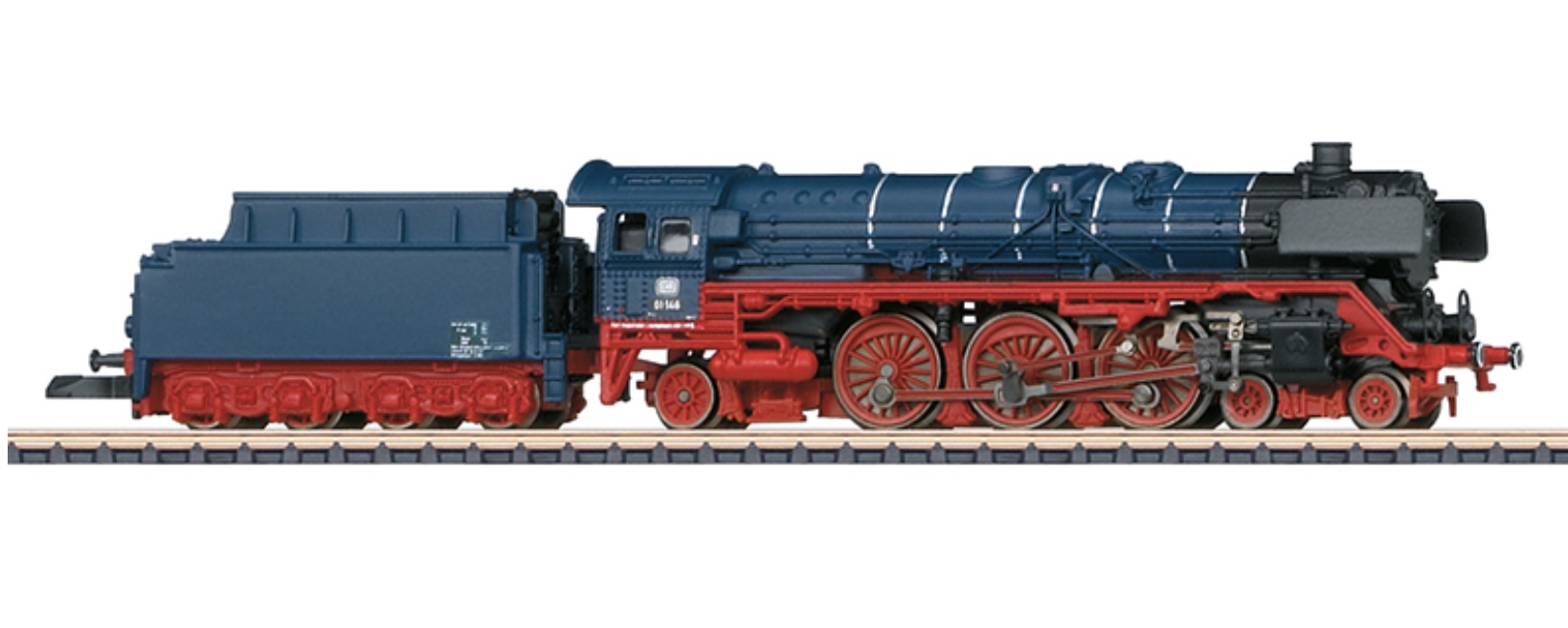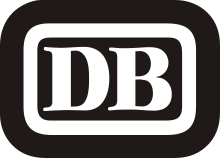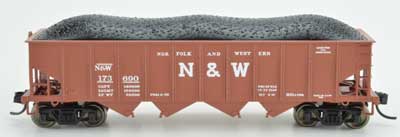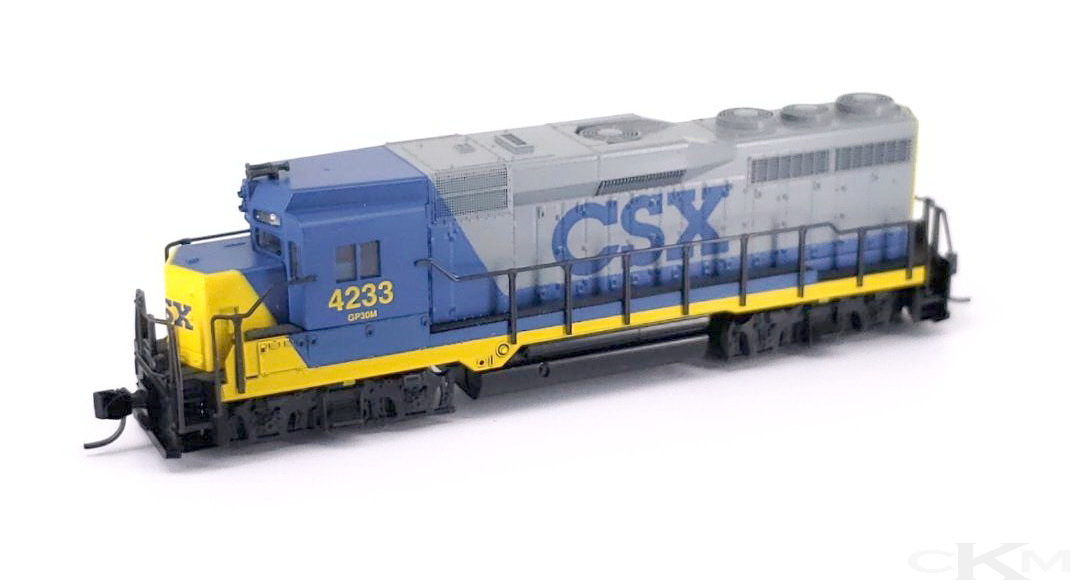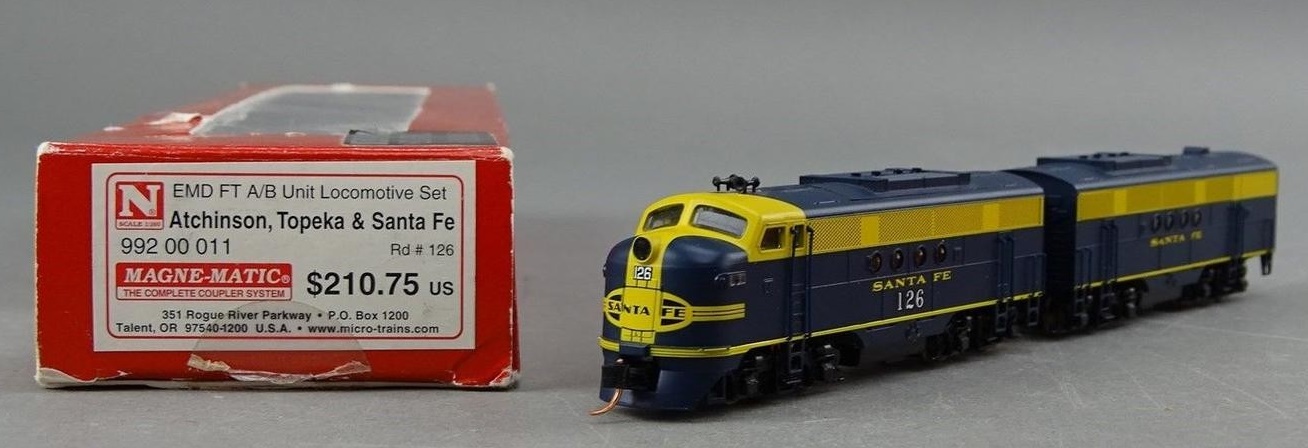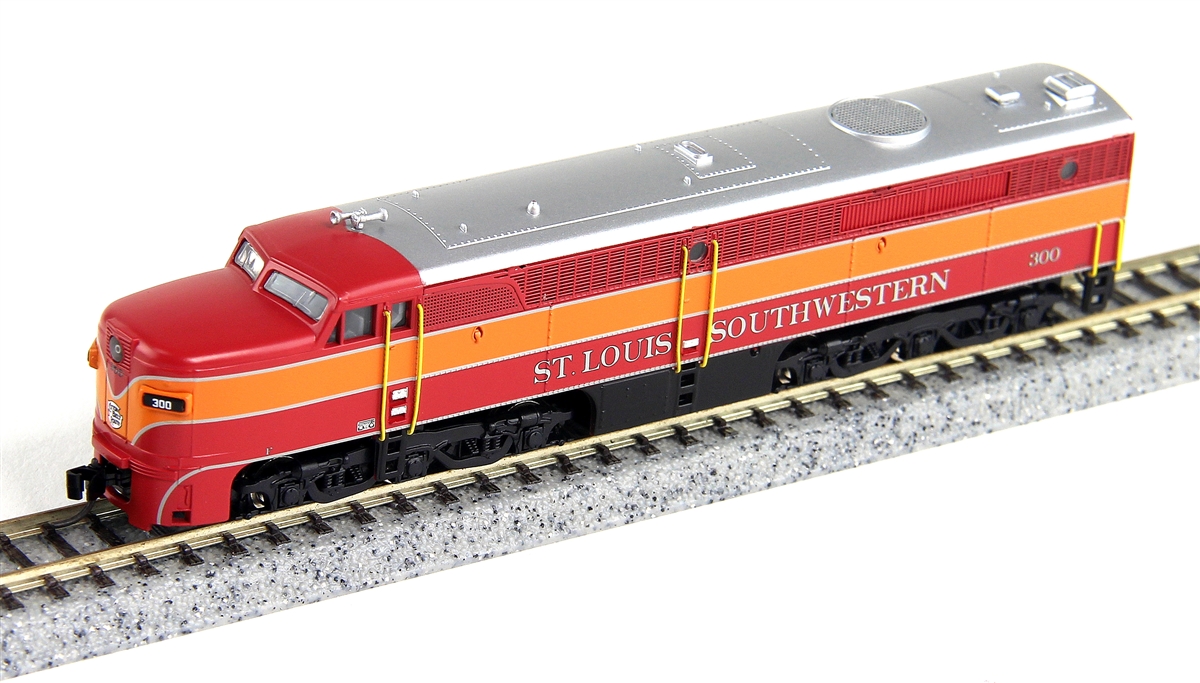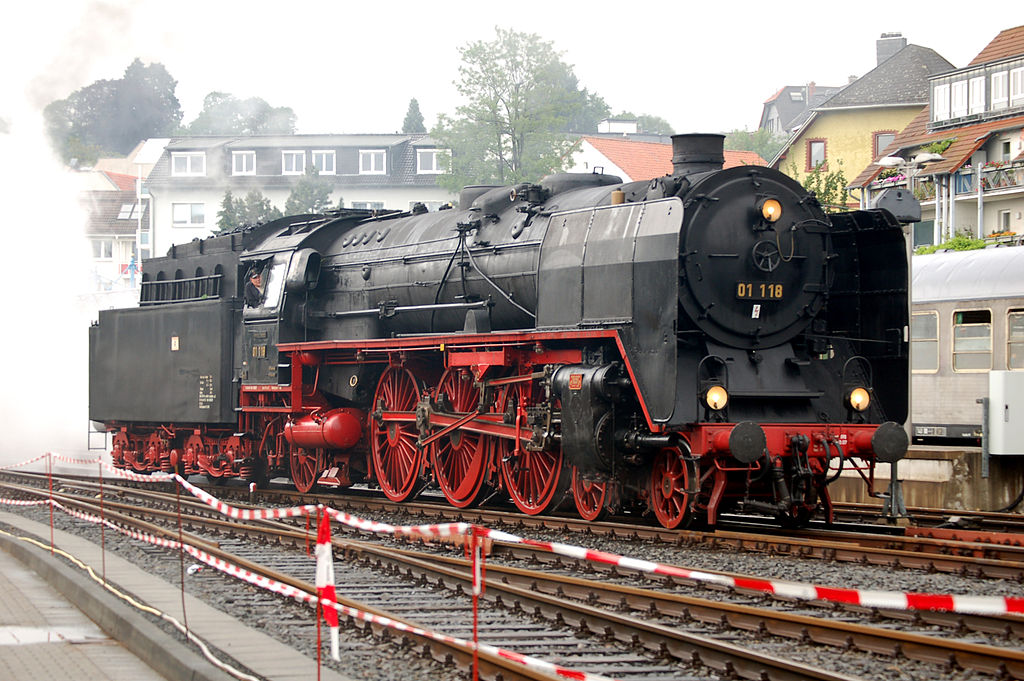Specific Item Information: German Federal Railroad (DB) class 01 express steam locomotive with a tender in the steel blue "F-Zug" paint scheme as it looked around 1957.
Prototype History: The Deutsche Reichsbahn-Gesellschaft's BR 01 steam locomotives were the first standardised (Einheitsdampflokomotive) steam express passenger locomotives built by the unified German railway system. They were of 4-6-2 "Pacific" wheel arrangement in the Whyte notation, or 2′C1′ h2 in the UIC classification. The idea of standardisation was that it would reduce maintenance costs; i.e. if a BR 01 whose engine shop was in, say, Berlin broke down in Dresden, instead of having to ship the necessary part from Berlin and take the locomotive out of service, a part from the Dresden shop could be used as all of the engines, parts, and workings were exactly the same and produced nationwide. Thus it was a "standard" product for engine shops.
Road Name History: Deutsche Bundesbahn was the Western Germany DB before reunification. After World War II, Germany (and the DRG) was divided into 4 zones: US, British, French and Soviet. The first three eventually combined to form the Federal Republic of Germany (the West) and the Russian zone became the German Democratic Republic (the East). German territories beyond the Oder were ceded to Poland except for the northern part of East Prussia, which was ceded to the Soviet Union in 1945.
From 1949, the new governments assumed authority for railway operations. The DRG's (or DR's) successors were named Deutsche Bundesbahn (DB, German Federal Railways) in West Germany, and Deutsche Reichsbahn (DR, German State Railways) in East Germany kept the old name to hold tracking rights in western Berlin.
Unlike the DRG, which was a corporation, both the DB and the DR were federal state institutions, directly controlled by their respective transportation ministries. Railway service between East and West was restricted; there were around five well-controlled and secure checkpoints between West and East Germany, and about the same number between East Germany and West Berlin. Four transit routes existed between West Germany and West Berlin; citizens of West Berlin and West Germany were able to use these without too much harassment by the East German authorities.
The DB started in 1968 with changing the locomotive and passenger car serial numbers to the UIC norm. In 1970 the DR followed. The DB started experimenting with the Intercity trains in a new livery (bright orange).
In 1989, the Wall fell. Train frequency rapidly increased on the existing East/West corridors; closed links which had formerly crossed the border were re-opened. On 3 October 1990, Germany was reunified; however, this was not immediately the case with the railways. Administrative and organisational problems led to the decision to completely re-organize and reconnect Germany's railways. The so-called Bahnreform (Railway Reform) came into effect on 1 January 1994, when the State railways Deutsche Bundesbahn and Deutsche Reichsbahn were formally reunited to form the current German Railway Corporation (Deutsche Bahn).
From Wikipedia
From 1949, the new governments assumed authority for railway operations. The DRG's (or DR's) successors were named Deutsche Bundesbahn (DB, German Federal Railways) in West Germany, and Deutsche Reichsbahn (DR, German State Railways) in East Germany kept the old name to hold tracking rights in western Berlin.
Unlike the DRG, which was a corporation, both the DB and the DR were federal state institutions, directly controlled by their respective transportation ministries. Railway service between East and West was restricted; there were around five well-controlled and secure checkpoints between West and East Germany, and about the same number between East Germany and West Berlin. Four transit routes existed between West Germany and West Berlin; citizens of West Berlin and West Germany were able to use these without too much harassment by the East German authorities.
The DB started in 1968 with changing the locomotive and passenger car serial numbers to the UIC norm. In 1970 the DR followed. The DB started experimenting with the Intercity trains in a new livery (bright orange).
In 1989, the Wall fell. Train frequency rapidly increased on the existing East/West corridors; closed links which had formerly crossed the border were re-opened. On 3 October 1990, Germany was reunified; however, this was not immediately the case with the railways. Administrative and organisational problems led to the decision to completely re-organize and reconnect Germany's railways. The so-called Bahnreform (Railway Reform) came into effect on 1 January 1994, when the State railways Deutsche Bundesbahn and Deutsche Reichsbahn were formally reunited to form the current German Railway Corporation (Deutsche Bahn).
From Wikipedia
Brand/Importer Information:  Gebr. Märklin & Cie. GmbH or Märklin (MÄRKLIN or MAERKLIN in capital letters) is a German toy company. The company was founded in 1859 and is based at Göppingen in Baden-Württemberg. Although it originally specialized in doll house accessories, today it is best known for model railways and technical toys. In some parts of Germany and in Sweden, the company's name is almost synonymous with model railroads.
Gebr. Märklin & Cie. GmbH or Märklin (MÄRKLIN or MAERKLIN in capital letters) is a German toy company. The company was founded in 1859 and is based at Göppingen in Baden-Württemberg. Although it originally specialized in doll house accessories, today it is best known for model railways and technical toys. In some parts of Germany and in Sweden, the company's name is almost synonymous with model railroads.
Märklin introduced Z Scale in 1972. Connoisseurs appreciate Märklin Z as much as the most inveterate modeler: The charm of these finely constructed gems is best seen in the smallest of space. Because, this scale with all kinds of precision translated into 1:220 scale awaits you with almost unlimited operating enjoyment. It doesn't get any better.

Märklin introduced Z Scale in 1972. Connoisseurs appreciate Märklin Z as much as the most inveterate modeler: The charm of these finely constructed gems is best seen in the smallest of space. Because, this scale with all kinds of precision translated into 1:220 scale awaits you with almost unlimited operating enjoyment. It doesn't get any better.
Item created by: CNW400 on 2022-08-02 14:52:57
If you see errors or missing data in this entry, please feel free to log in and edit it. Anyone with a Gmail account can log in instantly.
If you see errors or missing data in this entry, please feel free to log in and edit it. Anyone with a Gmail account can log in instantly.


